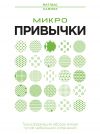Текст книги "Финансист / The Financier"

Автор книги: Теодор Драйзер
Жанр: Иностранные языки, Наука и Образование
Возрастные ограничения: +16
сообщить о неприемлемом содержимом
Текущая страница: 11 (всего у книги 16 страниц)
Chapter XLIII
The time that Cowperwood spent in the Eastern Penitentiary of Pennsylvania was exactly thirteen months from the day of his entry to his discharge. Six months after his incarceration, Edward Malia Butler died, sitting in his chair in his private office at his home.
He was buried with honors out of St. Timothy's Church, the funeral attended by a large body of politicians and city officials, who discussed secretly among themselves whether his grief over his daughter had anything to do with his end. All his good deeds were remembered, of course, and Mollenhauer and Simpson sent great floral emblems in remembrance. He left all of his property to his wife.
Butler's death led at once to a great change in the temper of the home. Callum and Owen were manifesting a certain degree of contempt for Aileen, which she reciprocated. Owen had plans of forcing her to leave after Butler's death, but Mrs. Butler, was very fond of Aileen, so therein lay a reason for letting her remain.
Owen himself was interested in Caroline Mollenhauer, whom he hoped some day to marry. In the January following Butler's death, which occurred in August, Norah was married very quietly, and the following spring Callum as well.
When it was decided to pardon Stener, which was in the early part of March, 1873—Cowperwood's pardon was necessarily included. In ten days, the Governor issued two separate pardons in writing.
Chapter XLIV
Wingate, Steger, and Leigh appear at Cowperwood's cell door, accompanied by Warden Desmas. The warden was quite pleased to think that Cowperwood should finally be going out—he admired him so much. On the way Desmas commented on the fact that he had always been a model prisoner.
Leigh smiled. “A very remarkable man, that,” he remarked to Desmas.
“Very,” replied the warden. “You can tell that by looking at him.”
The four looked in through the barred door where Frank was working, without being observed, having come up quite silently.
“Are you working, Frank?” asked Steger.
Cowperwood glanced over his shoulder and got up.
“What is this,” he asked, “a political delegation?”
All four smiled cheeringly.
“Nothing very much, Frank,” replied Stager, gleefully, “only you're a free man. You can gather up your traps and come right along, if you wish.”
Cowperwood was not one to be very much interested in jokes, but this pleased him—the sudden realization that he was free. He had been unhappy here. The shame and humiliation.
“That's all right,” he said, looking around him in an uncertain way. “I'm ready.”
He stepped out into the hall, with scarcely a farewell glance.
“It seems to me we ought to celebrate this occasion in some way,” observed Walter Leigh.
“I'd rather not, if you don't mind,” replied Cowperwood. “Just now I'd like to go home and change these clothes.”
He was thinking of Aileen and his children and his mother and father and of his whole future. He had learned so much about taking care of himself in those thirteen months. He was going to see Aileen, and find how she felt about things in general. He was going to secure a seat on 'change again, through his friends.
They let him down in front of his wife's little cottage, and he entered briskly in the gathering gloom.
On September 18, 1873, in the city of Philadelphia, one of the most startling financial tragedies that the world has ever seen had its commencement. The banking house of Jay Cooke & Co., the foremost financial organization of America, doing business at Number 114 South Third Street in Philadelphia, and with branches in New York, Washington, and London, closed its doors. Those who know anything about the financial crises of the United States know well the significance of the panic which followed.
At this time Cowperwood, once more a broker—ostensibly a broker's agent—was doing business in South Third Street, and representing Wingate & Co. on 'change. During the six months which had elapsed since he had emerged from the Eastern Penitentiary he had been quietly resuming financial, if not social, relations with those who had known him before.
Wingate & Co. were prospering. Ostensibly Cowperwood lived with his wife in a small house on North Twenty-first Street. In reality he occupied a bachelor apartment on North Fifteenth Street, to which Aileen occasionally came.
The panic, which was destined to mark a notable change in Cowperwood's career, was one of those peculiar things which spring naturally out of the optimism of the American people and the irrepressible progress of the country. Cowperwood could not believe it. He was beside himself with the thought of a great opportunity. Despite his natural dignity and reserve, he did not hesitate to run. If this were true, a great hour had struck. There would be wide-spread panic and disaster. There would be a terrific slump in prices of all stocks. Wingate must be on hand, and his two brothers. He must tell them how to sell and when and what to buy. His great hour had come!
“Now,” thought Cowperwood, to whom this panic spelled opportunity, not ruin, “I'll get my innings. I'll sell everything.”
Before, when the panic following the Chicago fire had occurred, he had much in order to protect himself. Today he had nothing to speak of—perhaps a paltry seventy-five thousand dollars. Thank God! He had only the reputation of Wingate's house to lose, if he lost, which was nothing.
His instinct told him how widespread and enduring this panic would be. The Northern Pacific was a hundred-million-dollar venture. It involved the savings of hundreds of thousands of people—small bankers, tradesmen, preachers, lawyers, doctors, widows, institutions all over the land.
Cowperwood hurried back to the exchange, the very same room in which only two years before he had sat, and, finding that his partner and his brother had not yet come, began to sell everything.
When the time for closing came, he emerged sane, quiet, steady-mannered. He found Wingate and his brother Joe, and together they began to figure up some of the larger phases of their purchases and sales.
What will be tomorrow? Who would be the next to fail? From whence would money be forthcoming? These were the topics from each mind and upon each tongue. From New York was coming momentarily more news of disaster. Over there banks and trust companies were falling like trees in a hurricane. Cowperwood, seeing what he could see and hearing what he could hear, was reaching understandings[81]81
was reaching understandings – заключал сделки
[Закрыть] which were against the rules of the exchange. He figured out his program for the day, feeling different from the way he had felt two years before. Yesterday he had made one hundred and fifty thousand dollars, and he expected to make as much, if not more, today.
He sat at his desk late afternoon in his office looking out into Third Street. He had the feeling that so far as Philadelphia and the life here was concerned, his day and its day with him was over. He did not care anything about the brokerage business here any more or anywhere. Failures such as this, and disasters such as the Chicago fire, had cured him of all love of the stock exchange and all feeling for Philadelphia. He had been very unhappy here in spite of all his previous happiness; and his experience as a convict had made him unacceptable.
“If I get out of this safely,” he said to himself, “this is the end. I am going West.”
He thought of street-railways, land speculation, some great manufacturing project of some kind, even mining, on a legitimate basis.
“I have had my lesson,” he said to himself, getting up and preparing to leave. “I am as rich as I was, and only a little older. They caught me once, but they will not catch me again. I am a millionaire. I am a free man. I am only thirty-six, and my future is all before me.”
It was with this thought that he went to visit Aileen, and to plan for the future.
It was only three months later that a train, speeding through the mountains of Pennsylvania and over the plains of Ohio and Indiana, bore to Chicago and the West the young millionaire. The West, as he had carefully calculated before leaving, held much.
Two years later, a quiet divorce was granted to Mrs. Frank A. Cowperwood in Philadelphia, because she wished it. She was now quite religious. The two children, Frank and Lillian, were in private schools, returning evenings to their mother.
Aileen explained to her mother that she had fallen in love with the former banker and wished to marry him. Chicago was before her—a much more distinguished career, Frank told her, than ever they could have had in Philadelphia.
“Isn't it nice to be finally going?” she asked Frank.
“It is advantageous, anyhow,” he said.
Грамматический комментарий
There was the probability that some day they would come into something even better. (Существовала вероятность, что в один день им подвернется что-то получше.)
And there were Indians and cannibals. (Кроме того, еще существовали индейцы и каннибалы.)
В русском языке оборотам there is, there are соответствуют глаголы есть, иметься, находиться. Глагол to be в этом обороте может быть в настоящем, прошедшем и будущем времени и согласуется с последующим существительным.
You have to take it away in twenty-four hours. (Вы должны его вывезти в течении двадцати четырех часов.)
We'll have to make Cowperwood a present. (Нам придется сделать Каупервуду подарок.)
Have to с последующим инфинитивом имеет значение вынужденности, необходимости, и соответствует в русском языке значению приходиться, быть вынужденным, должным. Используется в настоящем времени (I have to/ He has to do it.), в прошедшем времени (He had to do it.) и в будущем времени (I'll have to do it.).
Life was made for riding, driving, dancing. (Жизнь была создана для езды и танцев.)
Frank's chance came, when a call for a loan of twenty-three million dollars was authorized by the legislature and issued. (Шанс Фрэнка настал, когда запрос на ссуду размером в двадцать три миллиона долларов был авторизован и выписан.)
Страдательный залог (The Passive Voice) образуется при помощи вспомогательного глагола to be и V3 (третьей формой глагола) и используется во всех временах в случаях, когда подлежащее является лицом или предметом, подвергающимся действию со стороны другого лица или предмета.
Henry will have to get one. (Генри придется купить один.)
It will cost you ten per cent. (Это будет стоить вам десяти процентов.)
Will (вспомогательный глагол) + начальная форма глагола служат для образования Future Simple, будущего времени.
We hadn't thought of the hammock because of the neighbors, but it would be nice. (Мы даже и не думали о гамаке, из-за соседей, но было бы неплохо —.)
… he knew that his father would be glad to see him make thirty dollars. (Он знал, что его отец будет рад, если он заработает тридцать долларов.)
Would + инфинитив используются для образования сослагательного наклонения («бы»).
Frank, I wish you would see what you can do with this condition that confronts us. (Фрэнк, мне бы хотелось, чтобы ты придумал, что можно сделать с нашим нынешним положением.)
Конструкции с глаголом wish переводятся на русский, как «Жаль, что не …» и «Как же хочется, чтобы …».
This man, if he liked Frank, might do much for the boy. (Этот мужчина, если бы ему понравился Френк, мог бы сделать для него многое.)
He might eventually leave him some of his fortune. (Он мог бы даже оставить ему часть своего достояния.)
Модальный глагол might служит для передачи низкой степени уверенности и выражает возможность, вероятность. На русский язык переводится как может быть, возможно.
… what a State bank was and what was a national one … (…что называлось государственным банком, а что – национальным…)
One служит для замены любого существительного, упомянутого ранее в предложении, и помогает избегать повторов в тексте.
But I know where I can get some of that soap cheap. (Но я знаю, где можно достать мыло по дешевке.)
His father could not resist. (Его отец не мог устоять.)
Модальный глагол can (мочь, уметь) не изменяется в роде и числе и употребляется с инфинитивом (начальной формой глагола без частицы to. Для прошедшего времени используется глагол could.
The shoe store was closed for a few days. (Магазин обуви был закрыт на несколько дней.)
And during the next few months she found herself coming closer and closer to Cowperwood. (В ходе нескольких следующий месяцев она все больше сближалась с Каупервудом.)
He talked to Frank about his studies, and found that he cared little for books. (Он говорил с Фрэнком о его учебе, и выяснил, что того вообще не интересовали книги.)
He began to wish he could bid; but he had no money, just a little pocket change. (Он начал мечтать о том, как бы он сделал ставку; но у него не было денег, только немного мелочи в кармане.)
Few (для исчисляемых) и little (для неисчисляемых) переводятся на русский язык, как «мало».
НО «a few» и «a little» (c неопределенным артиклем) переводятся как «несколько, немного».
Англо-русский словарь
A
a – (неопределённый артикль) употр. перед исчисляемым существительным в ед. числе и придаёт ему обобщающее значение: любой, всё равно какой; один
abandon – покидать; оставлять
ability – способность, навык
able – могущий, способный (что-л. сделать)
abomination – отвращение
about – о; вокруг
abroad – за границей; за границу
absence – отсутствие
absently – отсутствующе
absolute – абсолютный; обязательный; полный; совершенный; неограниченный
absolutely – безусловно; совершенно точно, абсолютно
absurdity – нелепость, абсурдность
accent– 1) ударение; акцент 2) акцентировать, выделять
accept – принимать
acceptable – приемлемый
accident – несчастный случай; ошибка
accidentally – случайно
accompany – сопровождать
according – соответственно
account – 1) счёт; история 2) объяснять
accurate – точный
ache – 1) боль 2) болеть
achieve – достигать; добиваться
acknowledgment – подтверждение
acquaint – знакомить
acquaintance – знакомство
acquiesce – соглашаться; примиряться
acquire – приобретать
act – действовать; вести (себя)
active – деятельный, активный
activity – деятельность; мероприятие
actually – действительно; в сущности; на самом деле, в действительности
adamant – непреклонный
add – прибавлять; добавлять
additional – добавочный, дополнительный
address – 1) адрес 2) адресовать; обращаться
adhere – прилипать
adieu – прощание
adjoin – примыкать; прилегать
adjust – приводить в порядок; поправлять; приспосабливаться
admire – любоваться; восхищаться
admirer – поклонник; обожатель
admit – допускать; признавать(ся)
adorable – обожаемый; прелестный, восхитительный
adore – обожать; поклоняться
advance – продвигаться
advantage – преимущество, достоинство
advantageous – благоприятный; выгодный; полезный
adventure – приключение
advice – совет
advisable – рекомендуемый
advise – советовать
adviser – советник
affably – приветливо; любезно; мило
affair – дело
affect – влиять; оказывать воздействие
affection – привязанность; любовь
affectional – нежный
affectionate – любящий; нежный
affectionately – с привязанностью; с любовью
affirm – утверждать
afford – быть в состоянии; позволять
afraid – испуганный
after – после; за
afternoon – послеполуденное время; день, полдень
afterward – потом; впоследствии; позже
again – опять; вновь
against – против
age – возраст; век
agency – агентство
agent – агент; посредник
aggressive – агрессивный
agitate – волновать; возбуждать
agitation – волнение; возбуждение
ago – тому назад
agreeable – приятный
ahead – впереди; вперёд
air – воздух; вид
alas – увы!
alert – 1) тревога 2) настороженный 3) предупреждать, объявлять тревогу
alive – живой
all – все, всё
allotment – распределение; назначение; присуждение
allow– позволять; разрешать
almost – почти; едва не
alone – 1) один 2) одинокий
along – вдоль
already – уже
also – тоже; также
altar – престол; алтарь
although – хотя
altogether – в общем; в целом; вполне, всецело
always – всегда
amazement – изумление
ambition – честолюбие, амбиция
ambitious – честолюбивый; амбициозный
ambitiously – честолюбиво; амбициозно
ambuscade – 1) засада 2) нападать из засады
America – Америка
American – американский
among – среди; между
amount – сумма; количество
amuse – развлекать; забавлять
amusement – развлечение, забава; потеха
an – (неопределённый артикль) употр. перед исчисляемым существительным в ед. числе и придаёт ему обобщающее значение: любой, всё равно какой; один
analysis – анализ; разбор
anarchy – анархия
and – и, а
anger – 1) гнев, злость 2) злить
angrily – сердито; злобно; рассерженно
angry – сердитый, разгневанный
angular – угловой
animal – животное
announce – объявлять
announcement – объявление
annoy – раздражать, досаждать
anomalous – аномальный
anonymous – анонимный; безымянный
another – другой, ещё один
answer – ответ; отвечать
anticipate – ускорять, опережать; предвидеть; предчувствовать; ожидать; предвкушать
anticipation – ожидание; предвидение, предвосхищение
anxious – озабоченный; беспокоящийся; волнующийся; взволнованный
any – кто-нибудь, что-нибудь; сколько-нибудь
anybody – кто-нибудь, кто-либо, кто
anyhow – так или иначе; как-нибудь
anymore – больше не, уже не
anyone – кто-нибудь, кто-либо, кто
anything – что-нибудь; что-либо
anyway – во всяком случае; так или иначе; всё же; как бы то ни было
anywhere– где-нибудь
apace – быстро; вровень
apart – в стороне; в сторону; отдельно, врозь, порознь
apartment – квартира
apologetic – извиняющийся
apparently – видимо; очевидно; явно
appeal– взывать, обращаться; очаровывать
appear – показываться, появляться
appearance – вид, наружность, внешность; внешний вид; появление
application – прикладывание; наложение; применение; использование
appointment – назначение; встреча
approach – 1) подход 2) приближаться; подходить
approval – одобрение; утверждение
approve – одобрять, утверждать
apt – подходящий; уместный, удачный
arch – 1) арка; свод, дуга 2) перекрывать сводом; выгибаться, изгибаться
architect – архитектор
argue – обсуждать, спорить
argument – аргумент; довод; спор
arise (arose, arisen) – вставать; возникать
arisen – прич. прош. вр. от arise
arithmetic – арифметика
armchair – кресло
arose – прич. прош. вр. от arise
around – кругом, вокруг
arouse– пробуждать
arrange – планировать; устраивать; приводить в порядок; организовывать, раскладывать
arrangement – приведение в порядок; приготовление; удобства; приведение в порядок; договорённость
arrest – 1) арест; задержание 2) арестовывать; задерживать
arrival – прибытие
arrive – прибывать
art – искусство
artist – художник
artistic – художественный, творческий
artistically – художественно, творчески
as – как; в качестве, наподобие
ashamed – пристыжённый; испытывающий стыд
ask – спрашивать; просить
aspect – вид, выражение; аспект, сторона
assist – помогать
assistance – помощь
assistant – помощник; ассистент
assuage – успокаивать; смягчать; утолять
assume – предполагать
assurance – заверение, уверение
assure – уверять; заверять; убеждаться
astonish – удивлять; изумлять
astonished – удивлённый
astonishingly – удивительно
astonishment – удивление
astound – изумлять; поражать
astronomy – астрономия
at – в, на, у, при; за, около
Atlantic – атлантический
atmosphere – атмосфера
attach – прикреплять; привязывать
attain – достигать; добиваться
attempt – попытка; пытаться
attendance – присутствие; посещение; аудитория; публика; обслуживание
attendant – слуга; обслуживающее лицо
attention – внимание
attitude – отношение
attorney – уполномоченный, доверенный
attract– притягивать; привлекать
attractive – притягательный; привлекательный
attractively – притягательно; привлекательно
auction – аукцион; продавать с аукциона
auctioneer – аукционист
August – август
authorize – уполномочивать; решать
autumn – осень
avail – польза; выгода; результат
avariciously – скупо
avenue – аллея; проспект
average – средний, обычный
avoid – избегать
await – ожидать
awake (awoke, awoken) – 1) пробудить, просыпаться, будить 2) бодрствующий
awaken – пробудить, просыпаться
award – 1) присуждение; решение; награда, приз 2) присуждать
aware – знающий, осведомлённый
away – прочь
awe – 1) благоговейный страх; священный трепет 2) внушать благоговейный страх / трепет
awfully – ужасно, страшно
awoke – прош. вр. от awake
Правообладателям!
Это произведение, предположительно, находится в статусе 'public domain'. Если это не так и размещение материала нарушает чьи-либо права, то сообщите нам об этом.








































